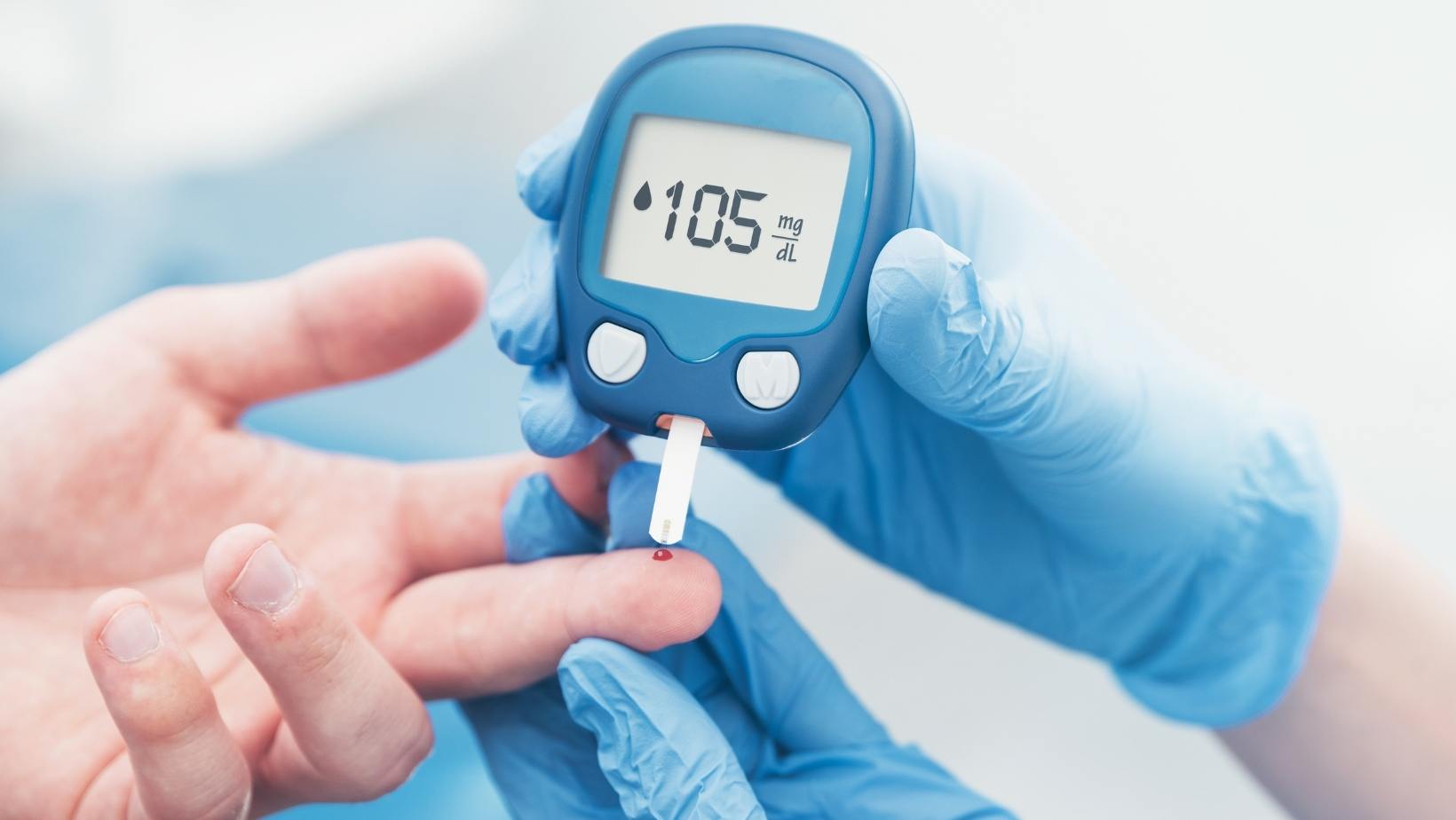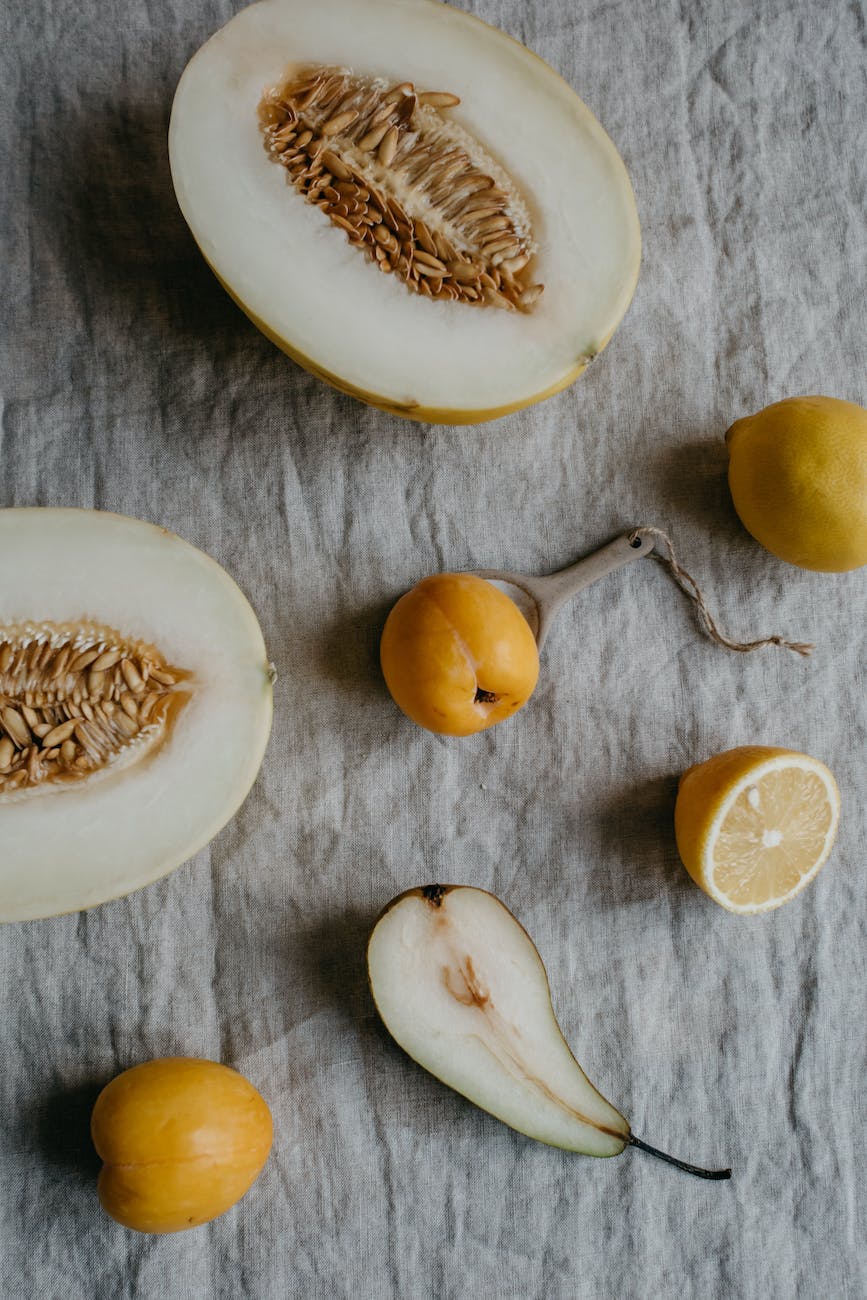
Managing diabetes requires a keen understanding of how different foods affect blood sugar levels. Fruits, while packed with essential nutrients, can have varying impacts on glucose levels due to their sugar content and Glycemic Index (GI). Here’s a comprehensive guide on the top 10 fruits and their relationship with diabetes:
1. Passion Fruit
Is Passion Fruit Good for Diabetes?
Nutritional Benefits:
Passion fruit is a tropical fruit known for its high content of vitamin A, vitamin C, and dietary fiber. It also contains antioxidants like carotenoids and polyphenols, which are beneficial for overall health.
Glycemic Index (GI) Impact:
With a low GI of around 30, passion fruit is an excellent choice for diabetics. Foods with a low GI are digested and absorbed more slowly, leading to a gradual rise in blood sugar levels.
Blood Sugar Impact:
The fiber content in passion fruit helps to slow down the digestion of sugars, leading to a more stable blood sugar response. However, like all fruits, it should be consumed in moderation.
Common Queries:
- Can diabetics eat passion fruit daily? While it’s low in GI, moderation is key. Consult your healthcare provider for personalized advice.
- Does passion fruit juice affect blood sugar? Juice can have a more immediate impact on blood sugar due to the absence of fiber. Stick to the whole fruit when possible.
2. Bananas
How Do Bananas Affect Diabetics?
Nutritional Benefits:
Bananas are rich in potassium, which is essential for heart health. They also provide vitamin C and B6, along with dietary fiber.
Glycemic Index (GI) Impact:
The GI of bananas can range from 42 to 62, depending on their ripeness. The riper the banana, the higher the GI.
Blood Sugar Impact:
While bananas can be part of a diabetic-friendly diet, the portion size and ripeness should be considered. Overripe bananas can cause a quick spike in blood sugar.
Common Queries:
- Are bananas safe for type 2 diabetics? Yes, but opt for less ripe bananas and consume in moderation.
- How many bananas can a diabetic eat in a day? One small to medium-sized banana is generally considered safe.
3. Mango
Mangoes and Blood Sugar Levels
Nutritional Benefits:
Mangoes are rich in vitamins A and C, and they also provide folate and small amounts of vitamin E. Additionally, they contain digestive enzymes and a good amount of fiber.
Glycemic Index (GI) Impact:
Mangoes have a moderate to high GI, ranging from 51 to 60.
Blood Sugar Impact:
Due to their sugar content and GI, mangoes can affect blood sugar levels. It’s advisable to consume them in moderation and monitor blood sugar levels afterward.
Common Queries:
- Can diabetics eat mangoes? Yes, but in limited quantities and preferably when they are not overly ripe.
- Is mango juice safe for diabetics? Mango juice, especially store-bought, often contains added sugars and should be avoided.
4. Avocado
How Does Avocado Affect Blood Sugar?
Nutritional Benefits:
Avocados are a unique fruit because they are low in carbs but high in healthy fats, primarily monounsaturated fat. They’re also packed with fiber, potassium, and vitamins E, K, and C.
Glycemic Index (GI) Impact:
Avocado has a very low GI, typically under 20, making it an excellent choice for diabetics.
Blood Sugar Impact:
Thanks to its low carbohydrate content and high fiber, avocados have a minimal impact on blood sugar levels.
Common Queries:
- How often can diabetics eat avocados? Avocados can be a daily part of a diabetic’s diet due to their low GI and beneficial fats.
- Can avocados help manage diabetes? While they won’t cure diabetes, their healthy fat and fiber content can help stabilize blood sugar levels.
5. Blueberries
Blueberries and Their Glycemic Impact
Nutritional Benefits:
Blueberries are antioxidant powerhouses. They’re rich in vitamins C and K, fiber, and several plant compounds that have been shown to protect against oxidative stress.
Glycemic Index (GI) Impact:
Blueberries have a moderate GI, typically ranging from 40 to 53.
Blood Sugar Impact:
While they have natural sugars, the fiber in blueberries helps moderate blood sugar spikes. They can be a part of a diabetic-friendly diet when consumed in moderation.
Common Queries:
- How many blueberries can a diabetic eat? A serving size of about ¾ cup is generally considered safe.
- Do blueberries lower blood sugar? While they don’t directly lower blood sugar, their high fiber and antioxidant content can support overall metabolic health.
6. Dragon Fruit (Pitaya)
Is Dragon Fruit Beneficial for Diabetics?
Nutritional Benefits:
Dragon fruit, also known as pitaya, is rich in vitamin C, fiber, and several antioxidants. It also contains prebiotics, which can promote a healthy gut.
Glycemic Index (GI) Impact:
Dragon fruit has a moderate GI, usually around 50.
Blood Sugar Impact:
Its high fiber content can help stabilize blood sugar levels, but it’s essential to consume in moderation due to its natural sugars.
Common Queries:
- How does dragon fruit affect blood sugar? The fiber in dragon fruit can help prevent rapid spikes in blood sugar.
- Can diabetics eat red dragon fruit? Yes, both red and white varieties can be consumed, but always in moderation.
7. Papaya
Papaya’s Relationship with Diabetes
Nutritional Benefits:
Papaya is a tropical fruit known for its high content of vitamin C, vitamin A, and folate. It also contains an enzyme called papain, which aids digestion.
Glycemic Index (GI) Impact:
Papaya has a moderate GI, typically ranging from 58 to 60.
Blood Sugar Impact:
While papaya has natural sugars, its fiber content can help moderate blood sugar responses. It’s best consumed in moderation.
Common Queries:
- Is papaya good for type 2 diabetics? In moderation, papaya can be a part of a type 2 diabetic’s diet.
- How much papaya can a diabetic eat? A small bowl or half a medium-sized papaya is generally considered safe.
8. Lemon
Lemons and Diabetes: What You Need to Know
Nutritional Benefits:
Lemons are packed with vitamin C, a powerful antioxidant. They also contain soluble fiber and have a cleansing effect on the digestive system.
Glycemic Index (GI) Impact:
Lemons have a low GI, typically under 20, making them a good choice for diabetics.
Blood Sugar Impact:
Lemons have minimal sugar content, and the fiber in them can help stabilize blood sugar levels.
Common Queries:
- Can diabetics drink lemon water? Yes, lemon water can be a refreshing and low-calorie drink for diabetics.
- How does lemon juice affect blood sugar? Lemon juice, when consumed without added sugar, has a negligible effect on blood sugar.
9. Green Apple
The Benefits of Green Apples for Diabetics
Nutritional Benefits:
Green apples offer a wealth of nutrients, including dietary fiber, vitamin C, and various antioxidants. They are also lower in sugar compared to their red counterparts.
Glycemic Index (GI) Impact:
Green apples have a moderate GI, usually around 38 to 40.
Blood Sugar Impact:
The fiber in green apples can help moderate blood sugar spikes, making them a better choice for diabetics compared to other apple varieties.
Common Queries:
- How many green apples can a diabetic eat? One green apple a day is generally considered safe for diabetics.
- Are green apples better than red apples for diabetics? Due to their lower sugar content, green apples are often recommended over red apples for diabetics.
10. Oranges
Oranges: A Sweet Citrus for Diabetics?
Nutritional Benefits:
Oranges are a rich source of vitamin C, potassium, and fiber. They also contain antioxidants that can help combat oxidative stress.
Glycemic Index (GI) Impact:
Oranges have a moderate GI, typically ranging from 42 to 52.
Blood Sugar Impact:
While oranges do contain natural sugars, their high fiber content can help slow the absorption of sugar, reducing the risk of blood sugar spikes.
Common Queries:
- How many oranges can a diabetic eat? One medium-sized orange is generally considered safe for diabetics.
- Is orange juice good for diabetics? Orange juice, especially store-bought, can lead to rapid spikes in blood sugar and is best consumed in moderation or avoided.
Bonus: Watermelon
Is Watermelon Safe for Diabetics?
Nutritional Benefits:
Watermelon is primarily water, making it incredibly hydrating. It’s also a good source of vitamins A, C, and B6, as well as antioxidants like lycopene, which has been linked to various health benefits.
Glycemic Index (GI) Impact:
Watermelon has a high GI, typically around 72. However, its glycemic load, which takes into account the amount of carbohydrate in a serving, is low due to the high water content.
Blood Sugar Impact:
While watermelon does have natural sugars, its high water content means you’d have to consume a large amount to ingest a significant number of carbs. Still, because of its high GI, it can cause a faster rise in blood sugar compared to other fruits.
Common Queries:
- How much watermelon can a diabetic eat? A small slice or a cup of diced watermelon is generally considered safe for diabetics.
- Does watermelon cause a sugar spike? Due to its high GI, it can cause a rapid rise in blood sugar if consumed in large quantities.
Conclusion
For diabetics, choosing the right fruits is crucial to maintain stable blood sugar levels. While fruits are nutritious, it’s essential to monitor their impact on blood sugar. The key is moderation and understanding how each fruit affects your individual blood sugar levels. Always consult a healthcare professional before making significant dietary changes. Remember, managing diabetes is not just about avoiding sugar but about maintaining a balanced and healthy diet overall.
FAQs
- Which fruits are best for diabetics?
Diabetics can enjoy a variety of fruits, including berries, green apples, and oranges. It’s essential to be mindful of portion sizes and monitor blood sugar levels after consumption. - How does the Glycemic Index (GI) of a fruit impact diabetics?
The Glycemic Index (GI) measures how quickly a food raises blood sugar levels. Fruits with a high GI can cause rapid spikes in blood sugar, so diabetics should consume them in moderation. - Are fruits with natural sugars safe for diabetics?
While fruits do contain natural sugars, many also offer essential nutrients and fiber that can help stabilize blood sugar levels. It’s about balance and portion control. - Can diabetics drink fruit juices?
Fruit juices, especially store-bought ones, can lead to rapid spikes in blood sugar. It’s better to consume whole fruits as they contain fiber, which slows sugar absorption. - Why is watermelon considered high in GI but still safe for diabetics in moderation?
Watermelon has a high GI due to its natural sugars, but its glycemic load is low because of its high water content. This means a standard serving won’t significantly impact blood sugar levels. - How can diabetics incorporate fruits into their diet safely?
Diabetics should focus on portion control, opt for whole fruits over juices, and monitor their blood sugar levels after consumption. It’s also beneficial to pair fruits with proteins or healthy fats to stabilize blood sugar.
Blog Tags:
Diabetes and Fruits, Glycemic Index, Blood Sugar Management, Healthy Eating for Diabetics, Fruit Benefits, Diabetic Diet, Natural Sugars, Fruit Nutrition, Diabetes Care, Safe Fruits for Diabetes.











